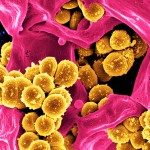Link to Pubmed [PMID] – 10391111
Inflamm. Res. 1999 May;48(5):239-46
Lymphocytes are antigen specific cells whose effector function is acquired through complex differentiation pathways. This implies, firstly, antigen encounter and recognition at specific sites, and, subsequently, the transition from a naive to a memory/effector phenotype. Clonotypically expanded cells must then be capable of recirculating to the tissue where their effector function is needed. To this aim, defined receptor-counter receptor pairs are expressed on lymphocytes versus endothelial cells. Extravasation is therefore a key-process in this scenario. Indeed, different lymphocyte subsets display distinct recirculation patterns and capability to migrate into lymphoid and non-lymphoid tissues. As a general rule, naive lymphocytes preferentially migrate into secondary lymphoid organs, where all the requirements for effective antigen presentation and differentiation are available; in contrast, memory/effector lymphocytes preferentially migrate to peripheral tissues, such as skin and mucosa. We review here the molecular events that regulate leukocyte extravasation and the specific migration properties acquired by both naive and memory/effector lymphocytes under physiological and pathological conditions.
